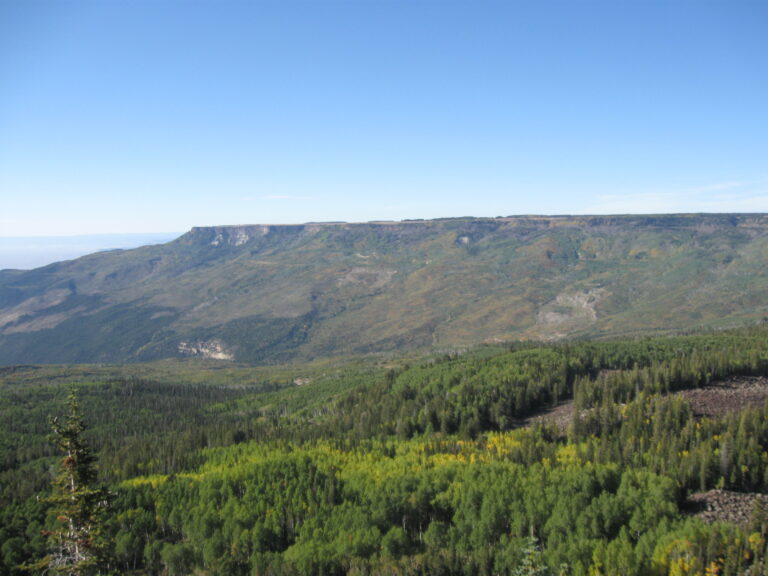That’s a favorite saying of Vail resident Allan Goldberg, First Descents executive director and 27-year cancer survivor. He likes the phrase so much so that he had it printed on t-shirts.
“It is a scary word and it deserves its reputation,” said Goldberg. “But I always thought if you went to a doctor’s office and heard that you have some uncontrolled growth of your cells in certain areas of your body, you’d be okay. Well, that’s cancer. We’re trying to get people away from just being afraid all the time.”
The “we” Goldberg mentions are the people behind First Descents, a free, week-long camp that uses kayaking and adventure sports to help young adults with cancer push themselves through challenging situations.

Founded by professional kayaker and Vail native Brad Ludden in 2001, the program hosts 15 campers during each of four summer sessions — two in the Vail Valley and two in Kalispell, Mont. Professional kayakers, including Ludden, teach downriver skills and safety: paddling, water exits, rolls, eddying out and more. Campers come in with no kayaking skills and, by the week’s end, most are running Class II and III rapids on their own. A full volunteer medical staff (including oncologists) is on-hand at all times.
During the summer of 2006, First Descents began focusing exclusively on young adults. And that doesn’t mean little kids. The cancer community generally defines young adults as people ages 18 to 39, and, according to Goldberg, they are an underserved, forgotten population.
“Young adults just fall through the cracks, because it’s not a ‘sexy’ population,” he said. “Everyone knows St. Jude’s (Children’s Hospital) and you kind of forget that there are people who have moved to adulthood that still have issues, or they’re diagnosed when they’re in the prime of their lives.”
“These are people that are college-age and above, that are just getting independent or just starting families, or in the middle of a young career, and all of a sudden they’re hit with this and they’re either dependent again or they’re lost. They don’t have the same resources.”
According to the National Cancer Institute, survival rates for young adults aren’t showing the same increases as other age groups. And for 25- to 35-year-olds, survival rates haven’t increased significantly since 1975.
“(Lower cure rates) are kind of indicative of the whole young adult cancer issue: underserved, under cared-for,” said Goldberg.
That is exactly why First Descents is targeting young adults. Camps abound for young children with cancer, and retreat/therapy programs are common for older groups. But no one in the country is tackling the 18- to 39-year-old population in the way that First Descents is. As Goldberg puts it, it’s not a place for “paste projects and paper airplanes.”

“The reality of what we do is, it’s not a Disney ride, it’s a scary, challenging thing,” he said. “Many campers are paddling Class III rapids by the end of the week, and that’s not just an accomplishment for a cancer patient, that’s an accomplishment for an individual.”
By showing campers that they can set and meet challenging goals, First Descents helps them realize that they’re much stronger than they may have thought.
“They do these things and they start realizing that they’re not fragile, that they can do things, and it starts giving them their identity back,” said Goldberg. “Cancer is a part of their life, but it does not have to be their life.”
“Brad (Ludden) is a world-class kayaker, adventure athlete, risk-taker. And I always use sports to challenge myself, to put (my experiences with) cancer in perspective, and to realize I can still do things,” said Goldberg. “We wanted to take our skill sets and put them together.”
The result? Much more than a summer camp. Ludden, Goldberg and the rest of the crew are trying to moving away from the word “camp.” It’s the First Descents experience.
“We had one woman, a 36-year-old brain tumor patient,” Goldberg said. “I became very close with her and on the last day there was a big Class III rapid, and she just nailed it. She gets done, and she says ‘I’m a mom, I’m a wife, I work, I’m a homemaker and I’m a cancer patient, but I never just get to be myself like I am here. It’s just about me.’”
First Descents is trying to share those types of experiences with more young adults each year. Goldberg and Ludden go on recruiting tours just to get the word out. And making First Descents free opens the door for a lot more people.
“Even with good insurance, medical costs are exorbitant,” said Goldberg. “We realize [that cost] can be a huge barrier to entry and we did not want to be a burden. We don’t want people to

say, ‘Man, I wish I could have gone to this, but I can’t afford it.’ We want First Descents to be a sanctuary.”
They’re hoping First Descents grows to include more locations and other adventure sports, such as surfing and mountain climbing.
“We want to expand with sports that allow people to challenge themselves by choice,” said Goldberg. “We’re not going to push anyone to the point of discomfort, but we want them to realize that they’re capable individuals. … And the way we look at it, the river is a metaphor. You have calm water, rapids; you’re going to tip, you’re going to fall, but you can make it through. It’s the journey.”
If You Go
For more information about First Descents, its events, programs and volunteer opportunities, visit www.firstdescents.org.
From the Editors: We spent a heap of time making sure this story was accurate when it was published, but of course, things can change. Please confirm the details before setting out in our great Centennial State.




